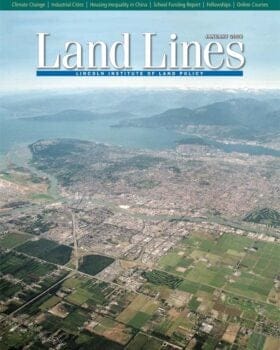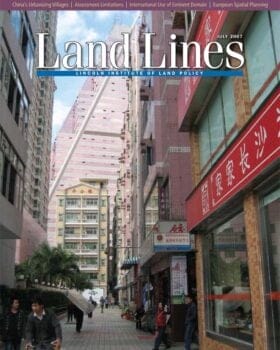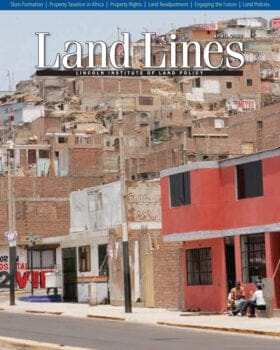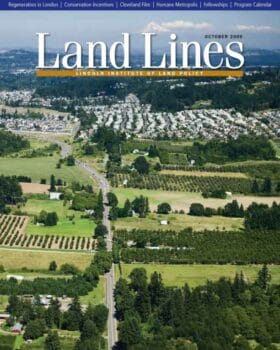
Land Lines
This issue explores how to make cities more sustainable without causing displacement, introduces a Colorado artist who draws inspiration from watershed health, and investigates how planners can use augmented reality to increase public engagement.
Subscribe-
Equitable Urban Greening
By Jon Gorey, July 22, 2025 -
Understanding Heirs Property
By Jon Gorey, July 11, 2025

January 2008
This issue looks at the need for coordinated mitigation efforts to combat climate change in North American cities; inequality caused by widening gaps in assessed property valuation that is associated with land taxation; and hukou-based housing inequality in Chinese cities.

October 2007
This issue hones in on socioeconomic conditions in post-Apartheid South Africa; strategies to improve U.S. state and local finances amid economic downturns; and the effects of urban land use regulations on the price of undeveloped property in Bogota, Colombia.

July 2007
This issue explores the lodging of rural migrants in China’s urbanizing villages; the unforeseen consequences of U.S. property assessment caps; international trends in the use of eminent domain; and planning tactics and aspirations of the European Union.

April 2007
This issue looks at the ubiquity of slums and informal land markets in developing nations across Latin America, Asia, and Africa; the need for a well-functioning property tax system in the Anglophone regions of Africa; and social conflicts associated with North America’s property rights movement.

January 2007
This issue explores the diversity of property rights, public-private partnerships, and other land policies across Latin America; the role of U.S. community land trusts in ensuring the preservation of affordable housing; and an uncommon and controversial use of eminent domain in one New England city.

October 2006
This issue looks at large-scale revitalization projects in London that are benefitting local communities; economic and environmental approaches to U.S. conservation easements; and the use of a variety of economic incentives to achieve land conservation in America’s heartland.
